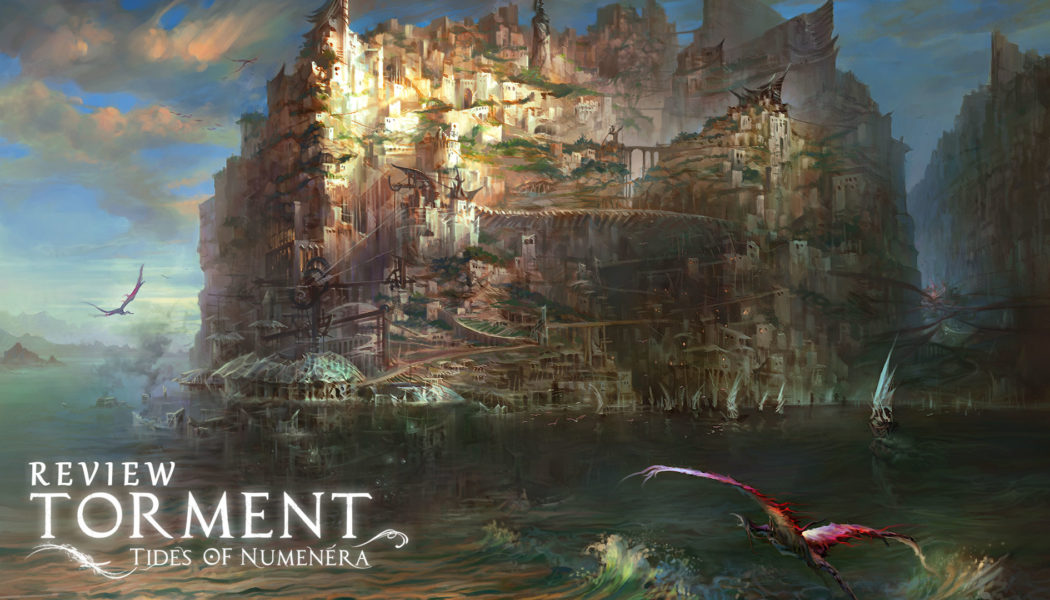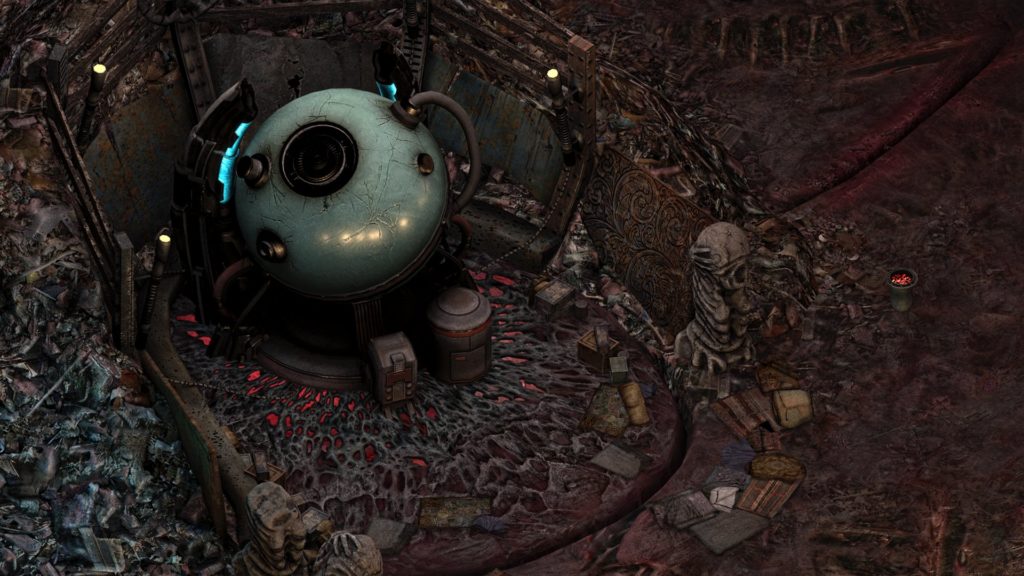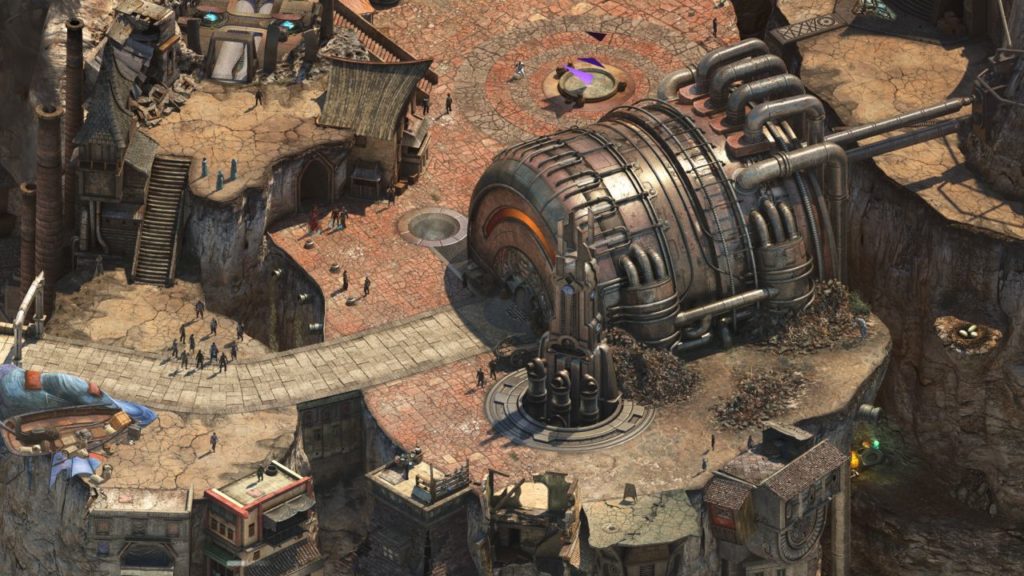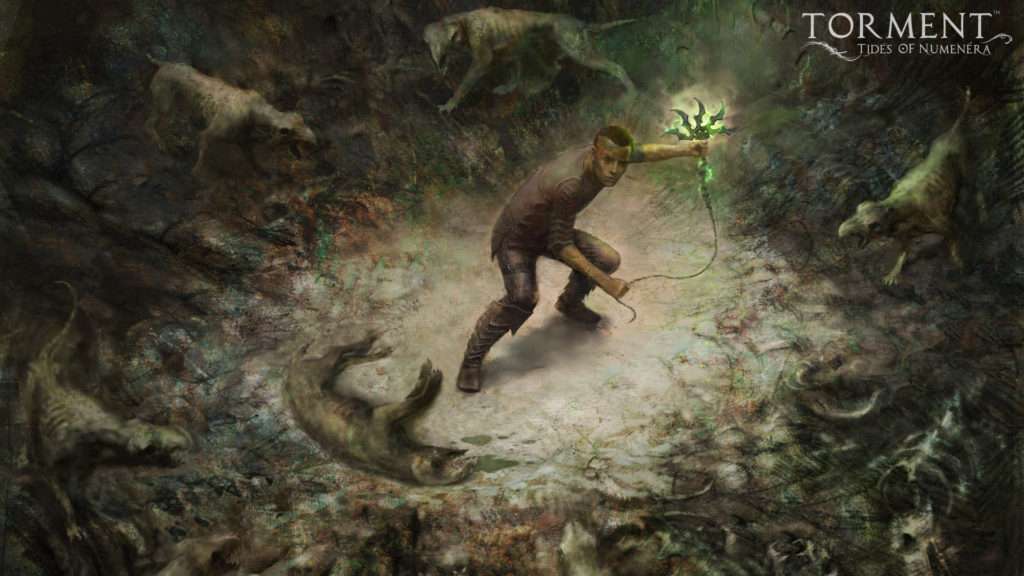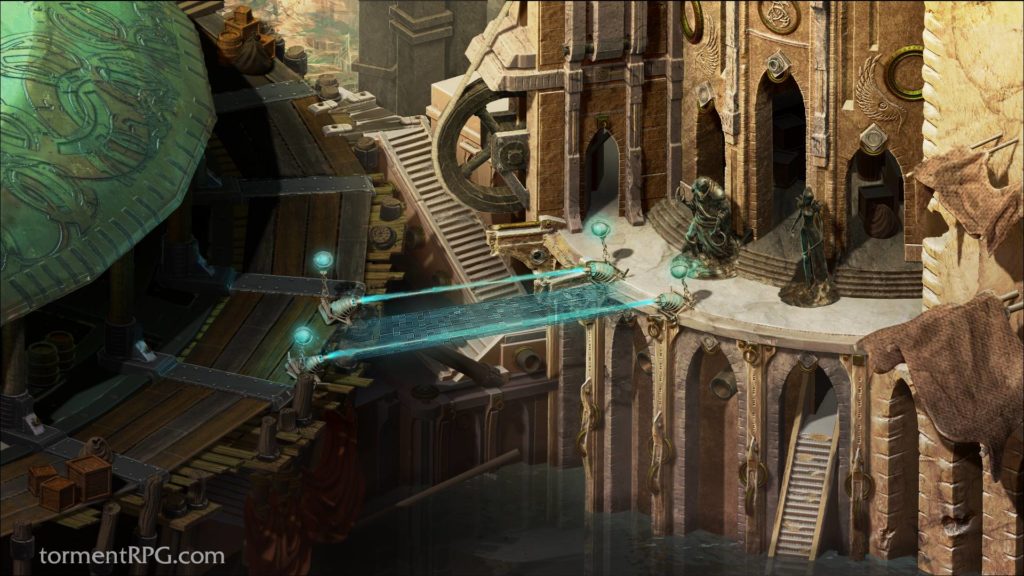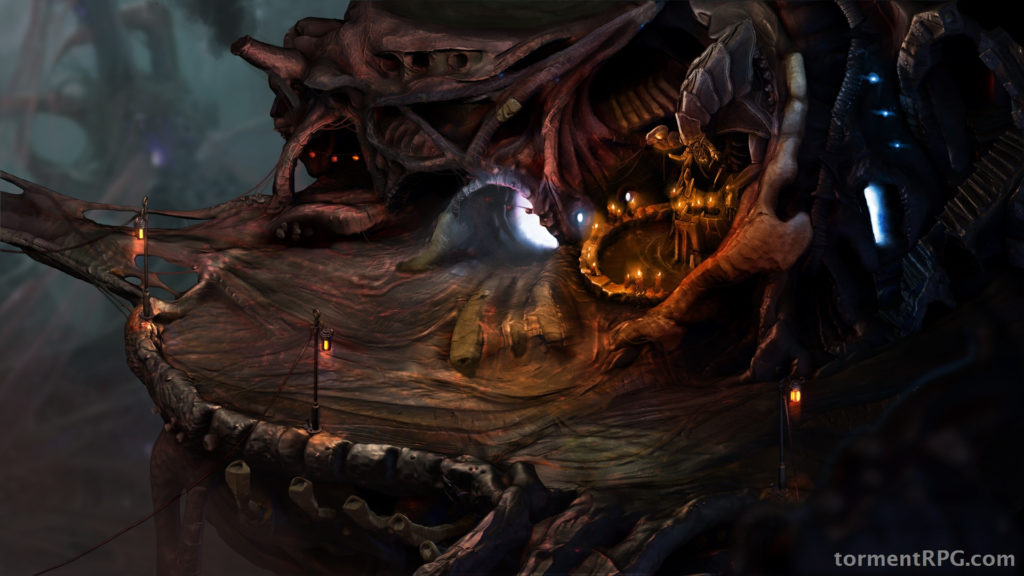At the heart of Torment: Tides Of Numenera is a singular question, “What does one life matter?” Backed by Kickstarter, with an initial goal of $900K, which was met in under 6 hours, and then went on to reach over 4 million dollars, Torment: Tides Of Numenera is the spiritual successor to 1999’s cult classic isometric RPG, Planescape: Torment, which is widely regarded as one of the best RPGs of all time, and stands among the likes of Neverwinter Nights, Baldur’s Gate and Knights Of The Old Republic. So, yeah, expectations were high.
As with Planescape, the world of Numenera is a mix of sci-fi and fantasy themes. Set 1 billion years in the future, you are in the Ninth World, with many civilizations having risen and fallen in the past. With very little knowledge of the world(s) past, all that’s left is Numenera – ancient technology of great power, much of it beyond comprehension. You play as the Last Castoff, an extension of the Changing God. As you set forth, you will come across allies and foes, and will need to use your wits, skills, and power to alter outcomes in your favor. In doing so, you will also alter these forces, known as Tides, which affect the world and how people in the world behave towards you.
There is a strong element of choice and consequence, some which extend over the duration of the main plot, some which are limited to side quests. Almost every encounter can have multiple results, and all of them feel satisfactory and carry weight. Will you choose to help free a caged alien creature and fight it, or will you tell the person who tamed it about the plot to free it? Will you choose to prance around pretending to be the Changing God himself, and have his followers do your bidding, or do you choose to go to the Order Of Truth, and uncover the, uh, truth? Options are many, and within the first few hours I found myself chasing side quests and bizarre plots, completely forgetting what my main objective was. Even dying in the game leads to interesting consequences, one of which was meeting a necrophage cult, with quite the sense of humor (or maybe I mistook it for humor, and they were ‘dead’ serious).
The main plot, while compelling, falls a bit short of being as epic and satisfying as the some of the side stories, but it is still really good. The companions and factions you meet along the way have believable motives and often have great depth to them, and interacting with them is rewarded with interesting back-stories and lore. I also enjoyed the fact that failing some objectives did not always lead to a failed quest, but instead lead to interesting consequences that went down entirely unexpected paths. The big strength here is the writing, which for the most part is brilliant. I wish the developers had added more ambient sound effects to compliment the writing (a la Tyranny) in order to set the mood more effectively, but it’s a minor complaint that rarely sticks out.
The weakest part of Torment: Tides Of Numenera is the combat. It’s a turn based system, based on managing skills across party members, but it lacks the refined polish that modern turn-based games like Divinity: Original Sin have. When there are numerous enemies in the encounter, it can sometimes become confusing to know who exactly is in the fight, and who are outside of it. It’s not always bad, and fights can often be avoided, so it does not take away too much from what lends merit to the game. And in fights against smaller groups of enemies, using tactics correctly, the flashing of spells, etc, can give way to spectacular and satisfying moments. I tried working my way around most fights, and at times even gave up on some side quests that led to frustrating crisis scenarios. Combat really is not a strong point with Torment: Tides Of Numenera.
As I mentioned before, the writing is excellent, and you will be doing a lot of reading. The game is very text heavy, and conversations can go on for more than just a few minutes at a time. The problem here is the lack of a centralized codex or even a contextual reference option (again, a la Tyranny) where you could right click on certain highlighted text in conversations to get more background information. It didn’t affect my overall experience with the game, but I certainly would have appreciated having it. Then again, this demanded that I pay more careful attention to everything, and remember as much information as I possibly could.
While the game runs just fine on PC, the console versions (I played a lot on the PS4) have severe performance issues. The framerate constantly drops to low 20s, and is very noticeable. However, since most of your time in the game is spent reading text, the framerate does not make the game unplayable, only really annoying. And, given how bad the performance is, it’s surprising that this issue has not been fixed as of writing this review. I still would recommend this game to console players, since Torment: Tides Of Numenera is that damn good, and CRPGs like these are very rare on consoles.
Despite performance issues on consoles, the game does look rather pretty on both PC and consoles. The art style is gorgeous and the theme certainly feels unique. The world is carefully and meticulously designed, and is packed with details that calls your eye to it. You would often be able to look at a place and begin to form stories in your head as to what might be happening there, before even going there and interacting with the people or objects in that area.
Torment: Tides Of Numenera is definitely a worthy successor to Planescape, and brings to the player a unique experience, filled with witty dialogues, weighty themes, and a fascinating world. If you’re a fan of good RPGs or have been longing for a good old classic RPG of yore, Torment: Tides Of Numenera is a must play.

